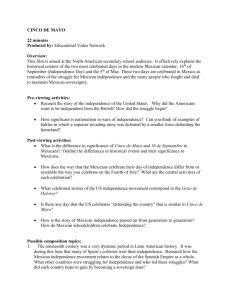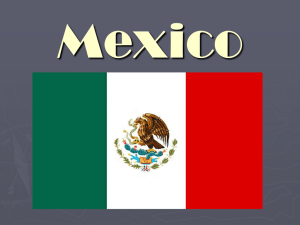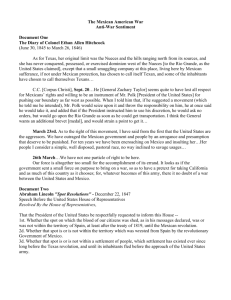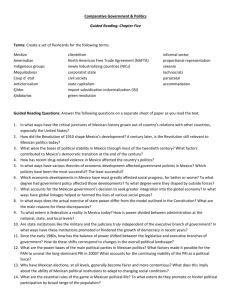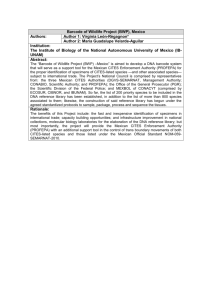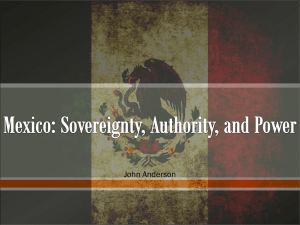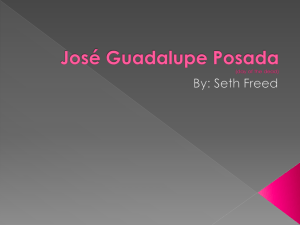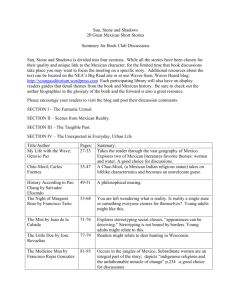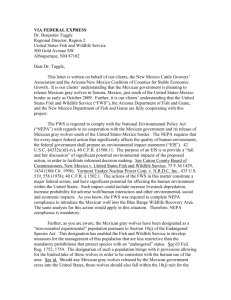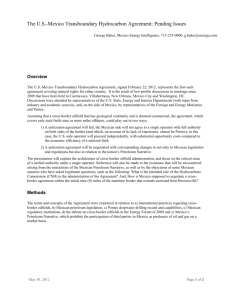This term in Mathematics we will
advertisement
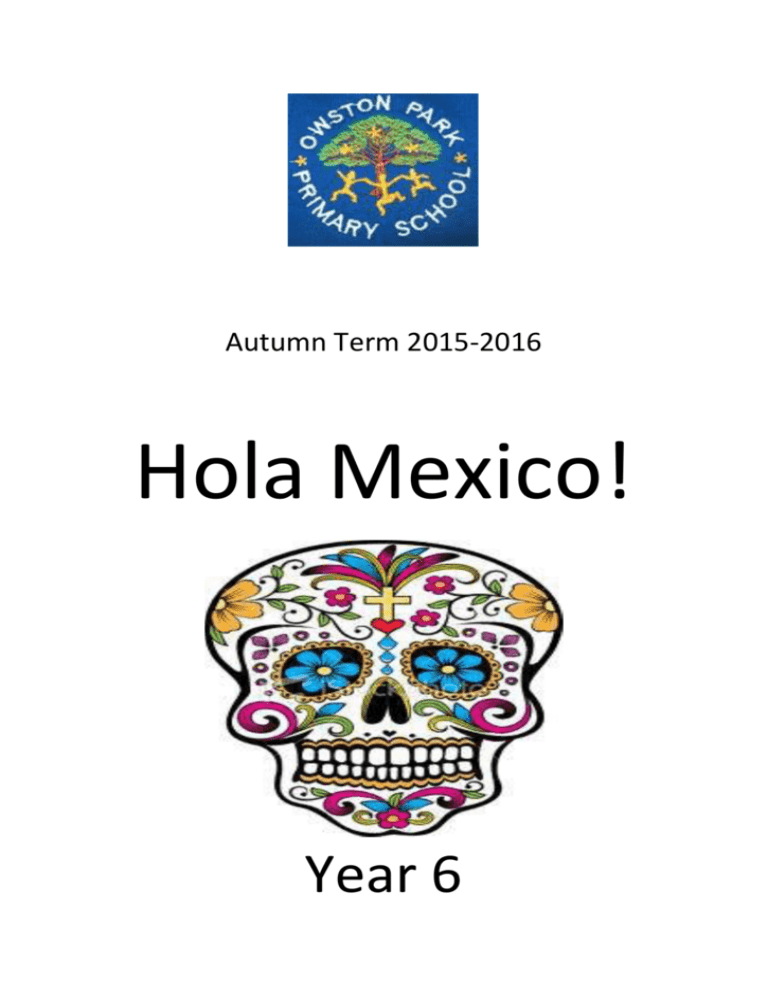
Autumn Term 2015-2016 Hola Mexico! Year 6 Hello and welcome to Year 6 This term our learning will be focused around the topic of ‘Hola Mexico’. The children will be exploring the unique country of Mexico, from its towering temples and stunning geography to its pulsing rhythms and fun packed festivals. In Design Technology, the children will be discovering Mexican food, designing and creating their own traditional Mexican fruit cocktail. In Art, the children will be creating a 3D ‘Day of the Dead’ skull including their own intricate Mexican design. They will also be creating their own Ancient Mayan civilisation ‘Bonampak mural’. In History and Geography, the children will learn about the Ancient Maya Civilisation. They will explore where and when the remains of the Mayan Civilisation were discovered. They will use maps to find out where they lived and find out how the Mayans civilisation developed over time. They will find out about their religions and beliefs. In RE, the children will studying Christianity. They will be looking at the Bible and thinking about how people live by the key Christian values. In Science, children be learning about Lights and Shadows. In Music, the children will have the opportunity to listen to and Mexican music. They will be able to use this music alongside their Mexican dances. In Computing, the children will have the opportunity to use search technologies to further their understanding of the Hola Mexico topic. In PSHE (Personal, Social, Health and Economic Education) the children will be looking at the topic of ‘Health and Wellbeing’. They will be discussing things such as positive and negative influences on our health and well-being. How media influences our choices. They will also look at ways of achieving personal goals and ways of managing risks in unfamiliar situations. In RSE we will be looking at ‘feelings, emotions and puberty’ and what a stable loving relationship looks like. We will also look at online safety. Towards the end of the term we hope to have our own ‘Day of the Dead’ festival. This term in Mathematics we will: Solve problems involving the calculation and conversion of units of measure, using decimal notation up to 3 decimal places where appropriate Use, read, write and convert between standard units, converting measurements of length, mass, volume and time from a smaller unit of measure to a larger unit, and vice versa, using decimal notation to up to 3 decimal places Convert between miles and kilometres Recognise that shapes with the same areas can have different perimeters and vice versa Recognise when it is possible to use formulae for area and volume of shapes Calculate the area of parallelograms and triangles Calculate, estimate and compare volume of cubes and cuboids using standard units, including cubic centimetres (cm³) and cubic metres (m³), and extending to other units [for example, mm³ and km³] To help your child you could: Identify, discuss and convert measures whilst doing the weekly food shop e.g. what is 1.4kg in grams? Devise your own problems involving measure for your children to solve e.g. I buy a two litre bottle of juice and I drink 60 ml. How much juice is left? Weigh and measure during activities such as cooking and baking, also convert measures whilst doing so from grams to kilograms etc. Practise their times tables with them weekly. Support them with their homework where possible. Test their mental maths skills when shopping. This term in Literacy we will: Read and discuss an increasingly wide range of fiction, poetry, plays, non-fiction and reference books or textbooks. They will read books that are structured in different ways and read for a range of purposes. Be encouraging them to recommend books that they have read to their peers, giving reasons for their choices. Be expecting them to check that the book makes sense to them, discussing their understanding and exploring the meaning of words in context. Be encouraging them to ask questions to improve their understanding of books, drawing inferences such as inferring characters’ feelings, thoughts and motives from their actions and predict what might happen next. They will be expected to summarise the main ideas drawn from more than one paragraph. Be expected to write legibly, fluently and with increasing speed. Plan, draft, edit and refine their writing by proof reading their own and others’ work. Learn about the features a recount and instruction texts for making their own Mexican fruit drink. Learn about the features of descriptive writing and use this to write their own description of a desert setting. In SPaG (spelling, grammar and vocabulary) the children will: Identify different types of nouns and pronouns and use them correctly. Identify and use main and subordinate clauses. Identify and use direct and reported speech. Identify and use relative clauses beginning with who, which, where, when, whose, that or with an implied (i.e. omitted) relative pronoun. Identify and use commas to clarify meaning or avoid ambiguity in writing. Identify and use semi-colons, colons or dashes to mark boundaries between independent clauses. To help your child you could: Listen to them read daily and discuss the text that they have read. Encourage them to make a note of any useful vocabulary that they might use in their own writing. Each time they read write a comment in their planners, making a note of the page they have read to. Encourage the children to learn their spellings each week ready for their weekly spelling test. Encourage them to improve their handwriting and presentation of work.

